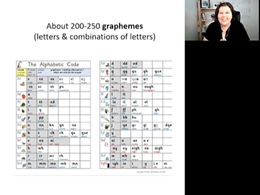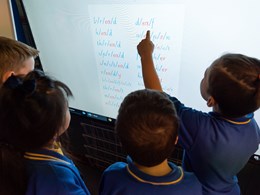Implementing a systematic synthetic phonics approach
Align your literacy instruction with the Science of Reading. Follow the Literacy Hub's free, online professional learning to build a systematic synthetic phonics (SSP) approach for reading and spelling.
Designed for Foundation to Year 2 classrooms, each topic includes:
- professional reading and videos
- practical classroom resources
- live sessions with our literacy specialists
- support to implement the approach in your school.
Follow the topics in numbered order, or select the ones that match your school's current progress towards SSP. Find your point of need on your SSP professional learning journey using this self-assessment diagram.

Introduction to SSP with Jocelyn Seamer
Find out about the Science of Reading and an SSP approach in this series of five videos.

1. Getting started with a phonics progression
A phonics progression is the first step in implementing a systematic synthetic phonics (SSP) approach in your school or classroom.

2. Explicit instruction for phonics - an instructional model
This topic will help you understand and implement the elements of explicit instruction.

3. Choosing and using decodable texts
This topic will guide you through the process of using decodable texts in your SSP program.

4. Fluency and progress monitoring
Help beginning decoders to develop fluency through SSP instruction and careful progress monitoring.

5. Assessment and intervention for an SSP approach
Learn how to assess specific and individual areas of knowledge and skills to determine the strengths and needs of beginner readers.

6. Spelling generalisations and SSP
A focus on spelling generalisations supports students to understand how the English alphabetic code works.

7. Morphology instruction and SSP
Discover how to teach morphology to help students' word level reading, spelling and vocabulary development.